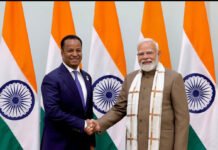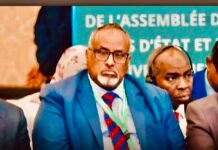Tuesday, June, 24,2025—HAN
Somalia is once again grappling with a complex political impasse as fierce debates unfold over the framework of the upcoming elections. The standoff between the Federal Government and various opposition groups and federal member states stems from the government’s proposed electoral path. Critics argue this model mirrors the political strategy or ‘playbook’ employed by Ethiopian Prime Minister Abiy Ahmed. Beyond the political deadlock lies a more alarming risk: the possibility that extremist groups like Al-Shabaab could exploit the disarray to regain strength and legitimacy.
Disputed Electoral Path: Where Did the Consensus Collapse?
The Federal Government led by President Hassan Sheikh Mohamud faces accusations of unilaterally advancing an electoral plan without sufficient consultation. Opposition leaders and some federal member states have expressed strong objections, citing concerns over the formation of election management bodies lacking independence, the bypassing of previous political agreements, and unrealistic timelines for a one-person, one-vote system.
Ethiopia’s Blueprint: Facts and Parallels
Prime Minister Abiy Ahmed of Ethiopia undertook sweeping political reforms that culminated in elections widely criticized for excluding opposition voices and centralizing power. The hallmarks of his strategy included sidelining independent electoral bodies, delaying elections under security pretexts, and suppressing dissent. Observers now detect similar trends in Somalia’s approach centralized control over electoral mechanisms, exclusion of dissenting voices, and the rapid introduction of laws without broad consensus.
The Looming Threat: An Opening for Al-Shabaab
One of the gravest concerns is that political fragmentation and public mistrust could create fertile ground for Al-Shabaab. When the government is entangled in internal power struggles, it risks neglecting the broader threat posed by extremism. Al-Shabaab has historically capitalized on governance vacuums and public disenchantment, positioning itself as an alternative authority in neglected areas. Any failure to build a credible and inclusive electoral process could significantly weaken state legitimacy and bolster the group’s recruitment and influence.
Conclusion: A Dangerous Road Ahead
If the Federal Government continues down this unilateral path—emulating a model marked by authoritarian tendencies—it risks not only stalling democratic progress but also endangering national stability. Somalia needs an election process built on transparency, inclusivity, and consensus. Otherwise, the primary beneficiary of this political mismanagement may not be any political actor, but Al-Shabaab itself.
Author: Mohamed Musse is a Political analyst & former Federal Election Commissioner




